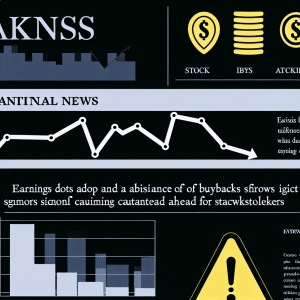Berkshire Hathaway’s Latest Earnings: What Investors Need to Know Beyond the Headlines
Berkshire Hathaway’s Q2 2025 earnings report dropped a mixed bag for investors. While the conglomerate’s operating earnings slipped 4% year-over-year to $11.16 billion, the headline numbers don’t tell the full story—and that’s where savvy investors can gain an edge.
The Earnings Dip: A Closer Look
Operating earnings took a hit largely due to a downturn in Berkshire’s insurance underwriting segment. This segment has long been a cornerstone of Buffett’s empire, but rising claims or adverse market conditions can weigh heavily on profitability. On the flip side, sectors like railroad, energy, manufacturing, service, and retail all posted gains, signaling that Berkshire’s diversified portfolio is still firing on many cylinders.
Yet, Berkshire shares fell over 2% post-earnings, extending a slide that’s seen the stock drop roughly 15% from its May peak. This decline coincided with Buffett’s announcement that Greg Abel will step in as CEO at the end of 2025, marking a pivotal leadership transition.
The Kraft Heinz Write-Down: A Rare Admission
One of the most striking moves was Berkshire’s $3.8 billion write-down on its 27% stake in Kraft Heinz. This is the first time Buffett’s conglomerate has recorded a loss on this investment, underscoring the challenges Kraft Heinz faces amid fierce competition in the branded food sector. Notably, two Berkshire executives resigned from Kraft Heinz’s board in May, hinting at possible strategic shifts ahead.
Bill Stone, CIO of The Glenview Trust Company, aptly summarized the situation: Buffett “paid too much for Kraft Heinz,” especially as consumer preferences evolve and competition intensifies. This write-down is a rare but important reminder that even legendary investors must recalibrate when market realities shift.
Cash Hoard and Stock Moves: What’s Berkshire’s Play?
Berkshire’s cash stash remains colossal—$344.1 billion near record highs—yet the company has been a net seller of stocks for 11 consecutive quarters, unloading $4.5 billion in equities in H1 2025. Moreover, Berkshire refrained from share buybacks during this period, despite the stock’s correction.
Edward Jones analyst Kyle Sanders points out that investors are looking for signs of increased investment activity, a major acquisition, or share repurchases to reignite confidence. The absence of these catalysts this quarter was a letdown for many.
What This Means for Investors and Advisors
-
Diversification Still Key: Berkshire’s mixed earnings highlight the importance of diversification. While some segments falter, others thrive. Investors should consider balancing portfolios to weather sector-specific headwinds.
-
Watch Leadership Transitions Closely: Greg Abel’s upcoming CEO role signals potential shifts in strategic direction. Investors should monitor his moves, especially regarding capital allocation, acquisitions, and buyback policies.
-
Reassess Overvalued Stakes: The Kraft Heinz write-down is a cautionary tale. Investors should critically evaluate holdings that may be overvalued or face structural challenges, even if they come from blue-chip names.
-
Cash is King—but Don’t Sit Too Long: Berkshire’s massive cash reserves provide firepower for investments, but prolonged inactivity can frustrate shareholders. Advisors should look for opportunities where cash can be deployed more aggressively without compromising safety.
Unique Insight: The Buffett Effect on Market Sentiment
Interestingly, Berkshire’s cautious stance and stock sales may be signaling broader market caution. Historically, Buffett’s moves influence institutional sentiment. His prolonged selling streak and buyback pause could be interpreted as a signal to brace for volatility or market recalibrations ahead.
What’s Next?
Expect heightened scrutiny on Berkshire’s investment activity in the coming quarters. A large acquisition or resumption of buybacks could serve as powerful catalysts. Meanwhile, investors might want to keep an eye on insurance underwriting trends and Kraft Heinz’s strategic moves, including the rumored grocery business spinoff.
In a market where uncertainty reigns, Berkshire’s latest report is a reminder that even the most storied investors must adapt. For those willing to dig deeper, these nuances offer a roadmap for navigating the evolving landscape.
Sources: CNBC, Edward Jones, The Glenview Trust Company
By integrating these insights, Extreme Investor Network readers gain not just the “what” but the critical “why” and “what’s next” that can transform news into actionable investment strategies. Stay tuned for more exclusive analysis that goes beyond the surface.
Source: Berkshire shares dip after earnings decline, lack of buybacks disappoint investors

